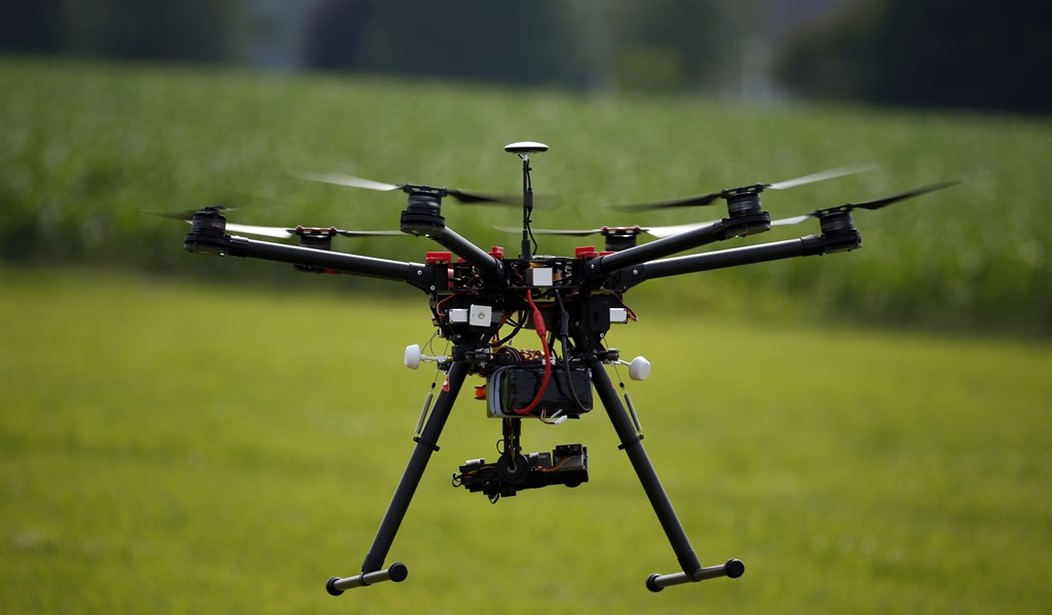If we wind the clock back to December of 2015 I was already talking about the new registration requirements which the Federal Aviation Administration was placing on civilian use of drones. The new rules had plenty of people upset for good reason. They seemed to place a needless amount of new regulatory burden on consumers and businesses alike while doing little or nothing to address the actual challenges coming from the rapid rise in popularity of this technology. They forced everyone to register any drone weighing more than half a pound (which means all drones that you could actually do something productive with) with the government and conveniently enough charge them a five dollar fee to do so. How they planned to enforce this law for the millions upon millions of drones being sold and who would take charge of that effort even if they could do it was not specified. And all of this regulating took place without the normal public comment period, and over the objections of groups like the Competitive Enterprise Institute who threatened a lawsuit in the hope of slowing the process down.
One hobbyist got pretty upset over the new rules and took the FAA to court. His claim was that the agency had enacted the rules based on a new aviation law which went into effect in 2012 empowering the FAA to implement such regulations, but they didn’t read the law very clearly. He claimed that “model aircraft” were exempt from any such regulations under the law. And now a judge has agreed, shutting down the registration requirements for the time being. (The Hill)
A D.C.-based appeals court Froday struck down a Federal Aviation Administration (FAA) rule on Friday requiring recreational drone users to register their model aircraft with the federal government, in a major win for drone hobbyists.
The U.S. Court of Appeals for the D.C. Circuit sided with plaintiff John A. Taylor, a recreational drone pilot, who argued that the FAA doesn’t have the power to make him register his toy drones because Congress already said the FAA can’t regulate model aircraft.
“The FAA’s 2015 registration rule, which applies to model aircraft, directly violates that clear statutory prohibition,” the opinion said. “We therefore grant Taylor’s petition and vacate the registration rule to the extent it applies to model aircraft.”
I suppose that in the end it all comes down to the definition of “model aircraft” in this usage. More traditional, RC model planes are very expensive and extremely complicated to fly. (Check out YouTube for hundreds of examples of them crashing disastrously.) And even if you manage to get one up in the air successfully there’s not all the much you can attach to it or do with it beyond simply flying. Drones, on the other hand, have gotten cheaper and cheaper while becoming much easier for the novice to operate. And you can attach all manner of things to them from cameras to guns.
Still, as I said above, trying to make people register them doesn’t really address a lot of the problems which have been coming up. Meanwhile, commercial drone use is on the rise but hitting similar snags with regulations and operational challenges. Amazon has been one of the early adopters, experimenting with ways to use drones for package delivery. But are government regulations the reason that they’re now doing most of their development work in France? (Bloomberg)
E-commerce giant is developing an air-traffic control system
New research hub in France will focus on fleet managementAmazon.com Inc.’s development of package-delivery drones is progressing to the point where the company is now thinking a lot about geese.
The e-commerce company said Thursday it has started development of an air-traffic control system to manage its fleet as the drones fly from warehouses to customers’ doors. Amazon created a new research and development team near Paris, where about a dozen software engineers and developers will build a system aimed at ensuring flying delivery vehicles don’t collide with buildings, trees, other drones and — most unpredictable of all — birds. Or, to use aviation industry jargon, “non-collaborative flying objects.”
Hey guys, I’m glad you’re taking such an interest in birds… I mean, “non-collaborative flying objects” and all, but why isn’t the development work being done in the United States? Just chalk that up as one more thing that Amazon should get around to explaining to us in the near future.








Join the conversation as a VIP Member